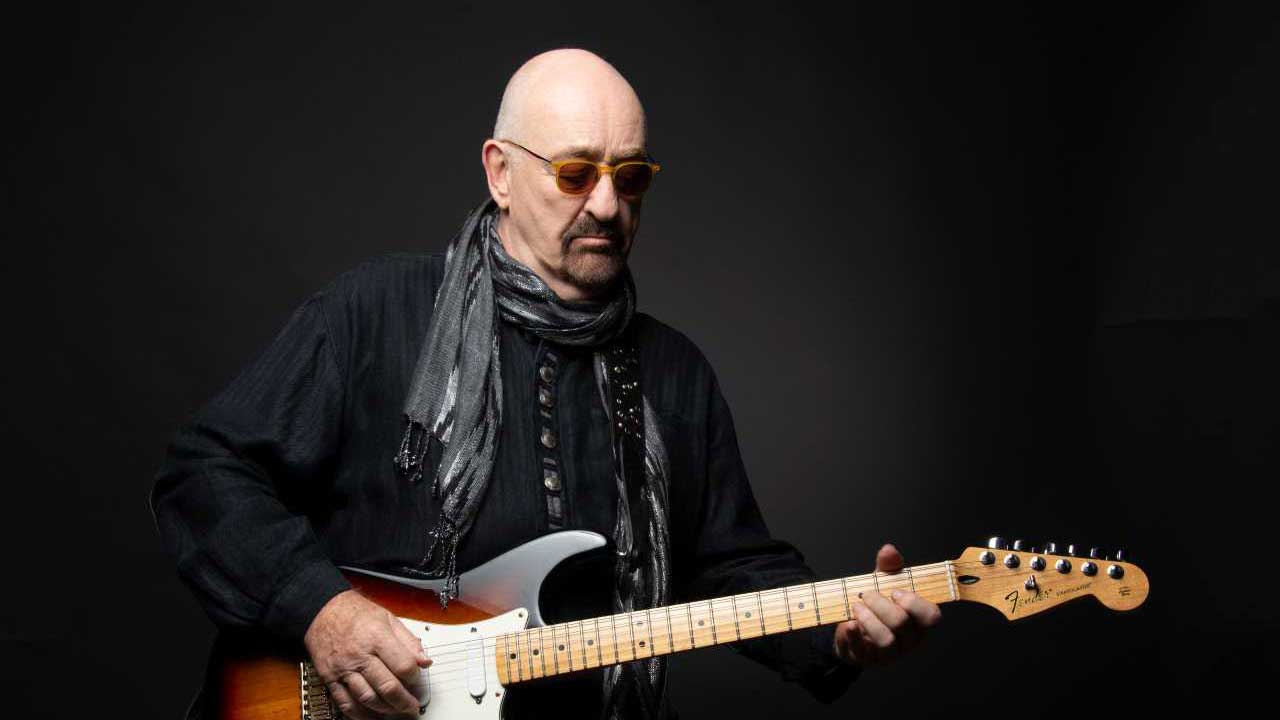The Oasis reunion has obviously contributed to another wave of interest in the 1990s, a decade that is already as iconic in the arc of post-war pop culture as the 1960s – today, maybe even more so . These records – which are feats of enterprise as much as creativity – all contributed to the success of the decade and, in the process, helped define it. Some were part of the Britpop narrative, others occupying parallel tributaries that swelled into a pool as the century rushed to a close.
While they all occupy the same time capsule, they also broadly share the same geographic area, ie not the United States. By the Nineties , pop had become more compartmentalised than ever, and yet it retained a verve and a spirit that was forever British. Before there was Britpop, there was this, which bridged the gap between ironic parochialism and the Stone Roses.

So good it still feels like a “Best Of”. The album that invented trip-hop. Once described by The Quietus as introducing the “Margate out-of-season mien”.
Bull-Rush is a solid-gold classic, all traffic and hedgerows. Was Richard James really the techno Mozart? Suddenly, it seemed that, after a misguided debut – Leisure , 1991 – Damon Albarn discovered Ray Davies, and the world looked very British again. For the rest of the decade, British groups would sing in British accents, even if they weren’t strictly born with them.
Britpop was upon us. This was a fine Sergio Mendes pastiche although, in their previous incarnation as Boys Wonder, from the mid-Eighties, Corduroy’s Ben and Scott Addison could rightly lay claim to having invented Britpop: their songs Shine On Me and Mayfair are the purest distillation of a post-modern world proscribed by a punk rock Lionel Bart. Techno protest songs.
Even though they went from retro to proto in the space of a year, this record (which contains their astonishing first four singles, The Drowners, Metal Mickey, Animal Nitrate, and So Young) is proof that there will always be elements of British pop culture that remain incomprehensible to US consumers and critics alike. Quite possibly the most inventive British album of the decade. Collins’ reluctant pop star persona couldn’t stop this single from being one of Britpop’s biggest US hits (it was used on the soundtrack of the coming-of-age comedy Empire Records).
An album of primal ambition driven by Noel Gallagher’s inherent belligerence and his brother Liam’s determination to secure a singing voice midway between John Lennon and John Lydon, and somehow finding it. While having nothing to do with Britpop, their dour articulation of trip-hop would act as an alternative soundtrack throughout the mid-Nineties. Too clever to be cheap, someone said, and that was right; a band that had refused to embrace the market suddenly found themselves – whoops! I don’t mind if I do – smack bang in the centre of the vanguard.
We are Britpop, and we denounce it. This is the Blur album you’re not meant to like, the gauche one, the album that betrays both the band’s influences (predictable) and their ambitions (scant, apparently). Even the band don’t like it much.
It is, however, something of a masterpiece and whatever aspersions have been cast in its direction are simply driven by the mob. Now hated by critics, the album is actually a fabulous example of what happens when a pop group just gets very good at what it does for a living. The Great Escape paid homage to the English tradition of music hall pop, the kind exemplified by the Kinks, Madness, Squeeze, XTC, Ian Dury and even the Clash.
Spiky guitars cut across lugubrious pianos. Naming your group after a fictional recluse (who appears in Harper Lee’s To Kill A Mockingbird) belies their pre-Britpop origins and yet, for many, this single is the genre’s most exuberant moment. Starting out in Madchester, they ended up having a support slot on Oasis ’s Knebworth gigs in 1997.
Elastica were called the Robin Hood of Britpop, pilfering from venerable punk bands. Fleetingly, the coolest band in Britain, using riffs on loan from the Stranglers and Wire. The debut single from ex-Suede guitarist Bernard Butler and extraordinarily gifted singer David McAlmont (one described, without any irony apparently, as a cross between Terence Trent D’Arby and Glenn Tilbrook).
Big pop, thrillingly arranged, in the style of Dusty Springfield. A behemoth. Never has an album been so synonymous with a decade.
Predictably, now sounds like a compilation. As inventive as it was trenchant, this is what Prince’s Sign o’ the Times was to the Eighties. The New Yorker’s Sasha Frere-Jones once said Radiohead sounded like an instrumental band that happened to have a singer, and their manic collages, their complex melange, was almost like soup.
Always destined for the outer reaches of post-rock, the band and this album remain much-revered. The Bends is full of songs that, on the one hand, sounded quite challenging, but on the other immediately got covered by buskers (good buskers, that is). With a video shot in a supermarket, obviously.
Recorded over a weekend, in a countryside studio, where the boys played boules and mucked about in boats while they recorded their mini-anthems to misspent youth. They were almost ironically teenage, and actually looked younger than the people who would even up buying their records. Their signature tune, Alright, sounded like summer incarnate, and they always appeared to be smiling.
Honestly, they were the Small Faces your mother could like. Liam Gallagher called them “the second best band in the world”, although they sounded a lot like a Scottish band that wanted to be the biggest US jingle-jangle band in the world (singing in American accents). But then, Britpop was always a broad church.
Trip-hop in excelsis. This was Tricky’s year. In February/March, he described being in a minicab going to Heathrow when a motorbike stopped beside his window at the traffic lights.
There was a huge billboard poster of him beside the road, and the biker looked at the poster, looked at Tricky, and did a double take at the poster again, looked back at Tricky, and then they both sped off. “Life suddenly was as weird as fuck.” Britpop’s one-hit wonder.
The anti-Britpop Britpop album, trying to rescue the working-classes from the “Cockney jamboree of greyhound racing”. A one-time spin-off from Blur bassist Alex James teamed with singer and guitarist Stephen Duffy and Elastica drummer Justin Welch, and originally commissioned for a Damien Hirst short film. Gloriously flimsy.
When a bucket hat meant business. A biological affront it may be, but the song was sufficiently Brit-ish to be included in the first Austin Powers film. Fetishised on the Trainspotting soundtrack.
Called a major-label mixtape – not wrong – this included the faux-grunge of Song 2, a record that was predetermined to herald any future TV announcement: this is happening and it’s happening now. Sampledelica, featuring Noel Gallagher and Beth Orton. An Anglo-Indian homage remixed by Norman (“Fatboy Slim”) Cook.
Best Britpop name. A little bit of female empowerment went a long way in 1997. A bunch of B-sides, which many cite as the best Suede album of all.
With a seemingly ineffable ability to enjoy themselves, Supergrass took it upon themselves to continuously reinvent the garage band. A genuinely epic single that forever sounds good pouring out of a radio. The looped orchestration was a sample from Andrew Loog Oldham’s version of the Rolling Stones’ The Last Time.
Former Stones manager Allen Klein owned the rights and promptly sued. Released the day after Princess Diana’s death, this foreshadowed the end of Britpop, or at least the sense of national jubilation that co-opted the later Nineties. Wild Horses for ParkaGen.
Often voted the best album of the decade. Look over your shoulder. “Mmmm, I could do that,” he thinks, looking at Oasis.
Creates a masterpiece in the process. South Coast funk soul brother. Redefining, reinventing indie for consumers with no apparent interest in Britpop at all.
After helping invent Britpop with Showgirl by the Auteurs (albeit unwittingly), Luke Haines helped kill it off by writing a song about a teenage mother and her baby stumbling through the debris of a plane crash. Alpha scene, beta band, meta song. The death of Britpop, via decay, disillusionment, and porn.
The song delivering his immortality wouldn’t arrive until 2004 (Absent Friends), and yet this is Neil Hannon at his Alan Bennett best. Adapted from Faster Than a Cannonball, by Dylan Jones (White Rabbit), out now in paperback.




















